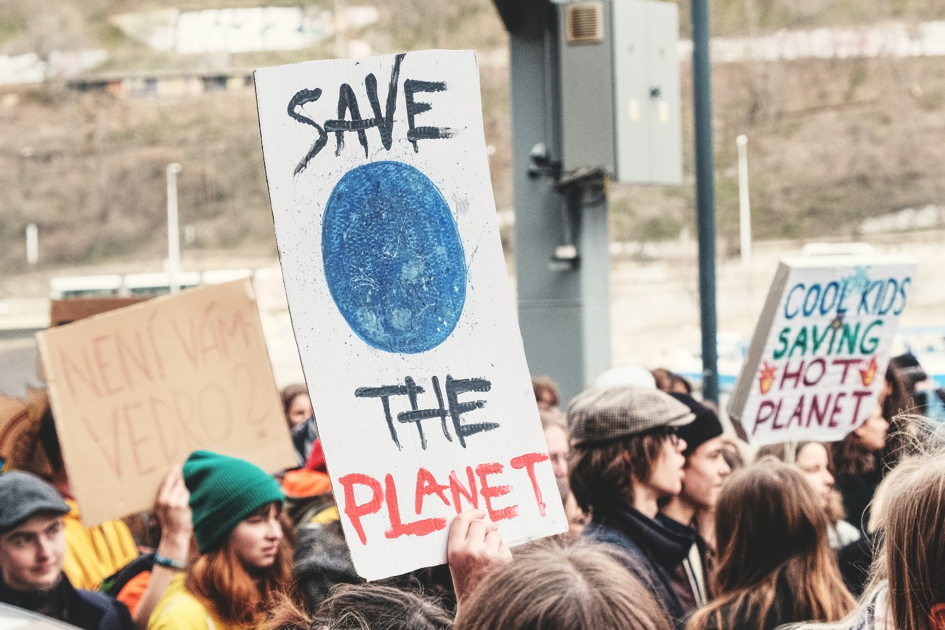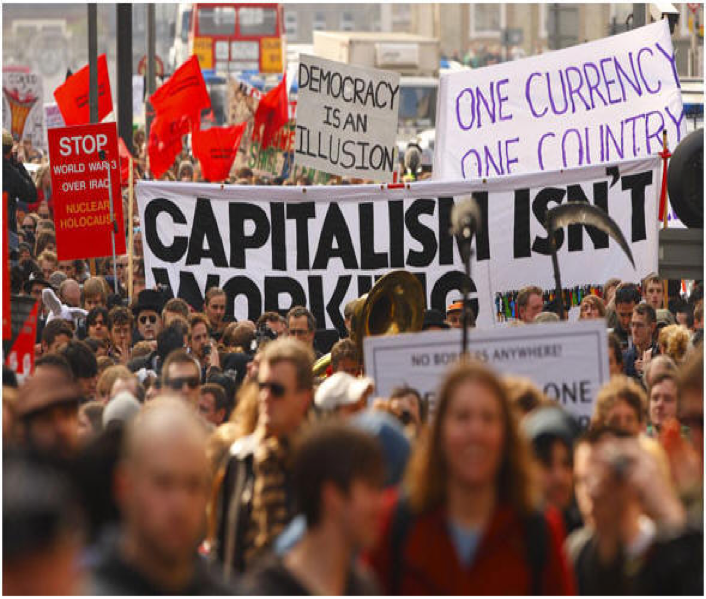Crisis and dis:connectivity
roland wenzlhuemer

(Image: Anna Shvets)
Crises and globalisation
Etymologically speaking, crises are dramatic — perhaps even life-threatening — phenomena.[1] They are inflection points. And as such, they are supposed to be temporary. So far in this still-young 21st century, individual crises might seem temporary, but the state of crisis that plagues society more broadly seems all too permanent. For years now, we have been enduring a constant, deeply transformative state of emergency, consisting of overlapping economic and social crises.[2]
Think back. Not long after the horrific attacks of September 11th and the subsequent global war on terror, much of the world suffered a dire financial crisis. Just as the global economy gradually started to recover, public consciousness began to grasp the reality of climate change, whose socio-economic effects are becoming ever harder to ignore. As people slowly started engage with the climate crisis, it was overshadowed in the mid-2010s — at least in Europe — by the ‘refugee crisis’ and the fears it evoked. While both of these issues remain with us, they have faded into the background, outshined by the ominous and mercurial COVID crisis.
For all their overlap and interrelations, these crises, of course, display important differences: they all move at their own paces and in their own temporalities; they all affect different regional epicentres, which can change over time; they all manifest themselves in our everyday lives in their own ways; they all engage particular collective and individual fears; and each one poses its own range of ethical dilemmas.
There is one thing, however, that all these crises have in common: they are deeply embedded in processes of globalisation, past and present.
Politically and religiously motivated terrorism, for example, is nourished by a complex global web of geopolitical ambitions and cultural antagonisms extending back at least to the days of triumphant European imperialism.[3]

(Image: Tomas Ryant)
In economics, the subprime mortgage crisis in the USA in 2008 permeated global capital markets along countless reciprocal ties.
A regional real-estate bubble rapidly induced a global banking crisis.
In ecology, human-induced climate change is inseparable from the history of industrialisation and consumerism. Rapid growth, interregional mobility and the global division of labour are what fuels it. Climate change pays no heed to human boundaries, national or otherwise. It is among the few literally global phenomena.
Another, surely, is COVID-19. In early 2020, the virus spread, well, virulently around the entire planet along the routes of global mobility networks.
Dense, interconnected, global networks are what all these crises share. They would be unthinkable without processes of worldwide exchange that have grown over the last 200 years or so. These crises make the scope and depth of global networks uniquely palpable.
Ripples of disconnection
Another common characteristic, however, is an often-overlooked aspect of globalisation: disruptive phenomena that corrode networks. Connection and *dis*connection, linkage and isolation, entanglement and disentanglement in constant oscillation. Each is unthinkable without the other.
Such co-relations have become undeniably tangible in the COVID crisis. In the early days of the pandemic, many borders were closed and tight regulations were imposed on interregional travel. Curfews and access restrictions became common, and large gatherings were outright forbidden. Schools have done their best with ‘distance learning’. Cultural events have sought refuge in cyberspace. Quarantine rules curtailed the production and transportation sectors, which has hamstrung global supply chains. The permeation of global networks into daily life is what makes the COVID crisis so disruptive.
The interplay between entanglement and disentanglement is apparent beyond the COVID crisis. Other recent events, like the Brexit process and the Ever Given, that fateful ship that ran aground in the Suez Canal and interrupted a key global shipping thoroughfare, are of the same stripe.

(Image: The Internationalists)
Even the overwhelming global cataclysms I mentioned above display dynamics of entanglement and disentanglement on closer inspection. The Great Recession began when the US real-estate bubble popped. Thus, there is an immediate tension between immobile, local objects (ie, buildings) and their valuation in volatile, deeply interconnected financial markets. The interplay is even more pronounced when considering the cause of the crisis. Trust — a primal type of connection — evaporated, and its lack rippled throughout the dense network of capital flows.
The climate crisis, whose creeping, surreal progress unmistakably carries a disconnective element within it, is similar. Attempts to combat climate change have been thwarted principally by insufficient will and the ineffectuality of international cooperation. In the face of the inherently global character of climate change, parochial interests and structures have largely trumped global initiatives.
Global refugee migrations exemplify more than just human mobility. They are also characterised by prejudicial treatment, closed borders, long delays, strict asylum regimes and even brutal ‘pushbacks’. Here, too, connective and disconnective aspects reciprocally constitute each other.
These crises are stories not only of global linkages; they also reveal disruptive, disconnective aspects of globalisation. It’s the interplay between them that defines such processes. At global dis:connect, our focus is precisely this interplay, which we refer to as dis:connectivity. This concept enables new perspectives on past and current processes of global interlinkage, and it might even help us to better understand the crises that result.
Global crises touch everyone. Us too.
We certainly hope that dealing with global dis:connectivity on a scholarly level will help us to cope with all the challenges we face in trying to found an international research centre in the middle of the COVID pandemic. There is indeed a certain irony in the fact that the Centre’s administration regularly confronts the interplay of connection and disconnection. Though we strive to make the Centre a locus of collaborative research and dialogue, we haven’t been able to meet in recent months as much as we’d like. We also endeavour to foster conversations between our international fellows and our in-house researchers, but travel restrictions have forced us to delay some fellows’ visits or to declare parts of their visits strictly ‘remote’.
We are trying to engage with the broader public, which is no small trick when large gatherings are inadvisable or prohibited. We’re trying to offer our fellows the best possible working conditions, which is not easy when the requisite articles and devices have been on order for months. And yet, we converse. We research. We share. And we organise. But we must also adapt. Even in the everyday life of the Centre, a new and fascinating interplay between global linkage and disruption manifests itself. So, dis:connectivity is something we’re not only researching at the Centre; we’re actively experiencing it.
[1] Reinhart Koselleck, ‘Krise’, in Geschichtliche Grundbegriffe: Historisches Lexicon zur politisch-sozialen Sprache in Deutschland, vol. 3, 8 vols (Stuttgart: Klett-Cotta, 1972), 617–50.
[2] Thomas Macho, ‘Krisenzeiten: Zur Inflation eines Begriffs’, Geschichte der Gegenwart (blog), 31 May 2020, https://geschichtedergegenwart.ch/krisenzeiten-zur-inflation-eines-begriffs/.
[3] Sylvia Schraut, Terrorismus und politische Gewalt (Göttingen: Vandenhoeck & Ruprecht, 2018); Carola Dietze, Die Erfindung Des Terrorismus in Europa, Russland Und Den USA 1858-1866 (Hamburg: Hamburger Edition, 2016).
bibliography
Brunner, Otto, Werner Conze, and Reinhart Koselleck, eds. ‘Krise’. In Geschichtliche Grundbegriffe. Historisches Lexikon zur politisch-sozialen Sprache in Deutschland. Band 3: H-Me, 617–50. Stuttgart: Klett-Cotta, 1982.
Dietze, Carola. Die Erfindung des Terrorismus in Europa, Russland und den USA 1858-1866. Hamburg: Hamburger Edition, 2016.
Macho, Thomas. ‘Krisenzeiten: Zur Inflation eines Begriffs’. Geschichte der Gegenwart (blog), 31 May 2020. https://geschichtedergegenwart.ch/krisenzeiten-zur-inflation-eines-begriffs/.
citation information
Wenzlhuemer, Roland. ‘Crisis and Dis:Connectivity’. Institute Website. Blog, Global Dis:Connect (blog), 3 January 2022. https://www.globaldisconnect.org/03/01/crisis-and-disconnectivity/?lang=en.
This post has also appeared in issue 1.1 of our in-house journal, static.





